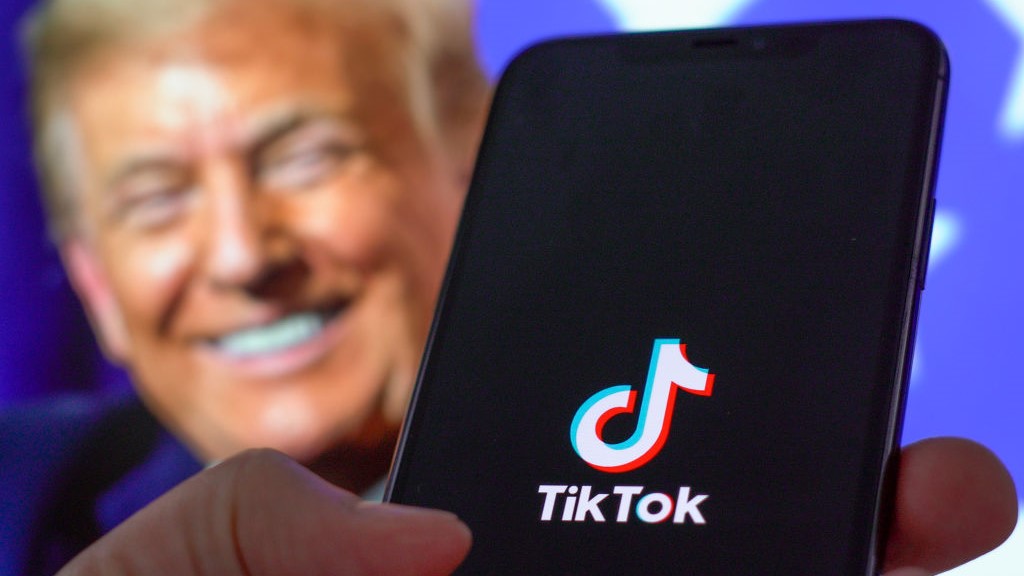TikTok goes the clock for US users of Chinese social media behemoth
A VPN may be needed to access the app in the case of total ban

The relationship between the US government and TikTok has long been shaky.
Now, however, tensions have reached a new high, culminating in President Biden signing off a federal ban on his last working day of 2022.
Under the new directive, federal employees are no longer allowed to use the Chinese-built social media app on their work devices. Over a dozen US States enforced a similar directive, too, with more expected to follow suit.
If that wouldn't be enough, lawmakers are also pressuring for such a regulation to be extended to all American users. This means that social media lovers may need to seek out the best VPN services to access the hugely popular app should a total ban be implemented.
With Washington increasingly looking at the Chinese-owned app as a threat to national security, how likely is it for TikTok to be completely censored in the US?
What's happening with TikTok in the US?
As mentioned before, on December 30 President Joe Biden signed an unprecedented order to bar TikTok from all federal government devices.
Unless used for national security activities, employees are now required to remove the app from their work smartphone.
At least 16 US Governors have so far implemented such a regulation on a state level.
While Florida and Nebraska have been banning TikTok on government devices since 2020, a longer list of US States have concluded last year enforcing a similar directive. Among Republican states like Texas, Alabama and North Dakota, also the Democrat state of Washington is likely to follow suit.
But, how did we get here?
TikTok - perhaps the most downloaded app worldwide counting over 100 million users in the US only - is owned and operated by Chinese software company ByteDance.
Given China's infamous policies towards data privacy together with political tensions within the two countries, concerns that the Chinese government could force the application to illegally collect US users data aren't that surprising.
More recently, a series of events have been boosting such worries even further.
In November, FBI director Christopher Wray raised the alarm on how China could exploit the popular social media app to "weaponize" data belonging to US users.
Then, the news of some TikTok employees spying on US journalists consolidated those fears.
Reporters' IP address locations, including former BuzzFeed journalist Emily Baker-White and Financial Times journalist Cristina Criddle, were illegally collected in an effort to track down sources leaking internal information.
Despite ByteDance and TikTok initially denying such allegations, the companies later admitted the wrongdoings and fired all the people involved.
BuzzFeed News deemed such actions as "a blatant disregard for the privacy and rights of journalists as well as TikTok users," The Guardian reported.
Has TikTok already been banned in the US?
No, TikTok has never been banned in the US.
However, it isn't the first time that the Chinese-based social media app has faced an order to shut down its transpacific operations.
TikTok already risked a total ban in 2020 under the Trump administration which saw the app as a serious national security concern.

Plans to sell part of the social media firm to an American company were interrupted as TikTok filed a lawsuit against the US government.
The measure was then blocked and eventually revoked by new President Joe Biden.
Now, two years later, Democrats officials are wondering if Donald Trump was right after all.
"As painful as it is for me to say, if Donald Trump was right and we could’ve taken action then, that’d have been a heck of a lot easier," said Sen. Mark Warner, Vox reported.
How likely is a total TikTok ban in the US?
The 2020 Trump's failed attempt clearly shows how banning TikTok entirely from operating in the US isn't that straightforward.
As the EFF general counsel, Kurt Opsahl, said to The Guardian a total ban could be seen as "a violation of free speech."
That's not to mention the possible geopolitical implications of such a decision - legal action could lead to Xi Jinping Party enforcing similar blocks on US businesses operating in China.
Opponents also argue that TikTok isn't the only big tech company users should be wary of.
"Unless we’re also [going to] ban Twitter and Facebook and YouTube and Uber and Grubhub, this is pointless,” said the Fight for the Future director Evan Greer to The Guardian, warning of the many ways governments can get data from similar apps.
At the same time TikTok deemed the campaign as a "politically-motivated ban that will do nothing to advance the national security of the United States," the BBC reported.
Yes American social media companies also collect data on Americans and that should be addressed But @tiktok_us is another level of dangerThey don’t just collect data for their own use,they are controlled by & directly give our data to a foreign government in #ChinaDecember 14, 2022
What's certain is that the debate is open and increasingly more parties are now looking to minimize the threat posed by Chinese-owned social media applications.
A long-time critic, Florida Senator Marco Rubio is pushing to pass a bill to fully banish TikTok for all citizens in an attempt to protect "Americans by blocking and prohibiting all transactions from any social media company in, or under the influence of, China, Russia, and several other foreign countries of concern."
More notably, the proposed law is already gaining bipartisan support even from some Democratic law benches.
More moderate alternatives and compromises are on the table, too.
Republican Mike Gallagher - the congressman proposing the total ban alongside Rubio - argued that the sale of TikTok to a US company could be "one acceptable outcome," the Financial Times reported.
The government is also looking into setting up some security protocols to prevent China from spying on US users. However, some tech experts believe that these would not be fit for the purpose.
Which countries have already banned TikTok?
The USA isn't the only government seeking to limit the reach of Chinese-built social media apps.
Countries like Indonesia, Pakistan and Bangladesh imposed temporary bans to stop the spread of inappropriate content, such as pornography and gambling.
In Afghanistan the Taliban regime announced in April last year a total ban of the app always for content related matters.
India is, so far, the biggest country to have shut down TikTok citing national security reasons.
The Ministry of Electronics and Information Technology completely banned TikTok together with 58 other Chinese-built apps in June 2020, following growing military tensions on some disputed territories on its border with Western China.
Calls to ban the incriminating social platform have also arisen in Australia and Taiwan.
Sign up to the TechRadar Pro newsletter to get all the top news, opinion, features and guidance your business needs to succeed!

Chiara is a multimedia journalist committed to covering stories to help promote the rights and denounce the abuses of the digital side of life – wherever cybersecurity, markets, and politics tangle up. She believes an open, uncensored, and private internet is a basic human need and wants to use her knowledge of VPNs to help readers take back control. She writes news, interviews, and analysis on data privacy, online censorship, digital rights, tech policies, and security software, with a special focus on VPNs, for TechRadar and TechRadar Pro. Got a story, tip-off, or something tech-interesting to say? Reach out to chiara.castro@futurenet.com